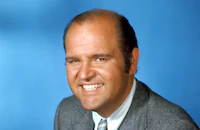Fatso

Brief Synopsis
Cast & Crew
Anne Bancroft
Dom Deluise
Anne Bancroft
Ron Carey
Delia Salvi
Nora M. Fisher
Photos & Videos
Film Details
Technical Specs
Synopsis
Dominick DiNapoli is an overweight New Yorker who's getting pressure from his sister Antoinette to lose weight. With the help of the Chubby Checkers, members of a group fanatic fat-fighters, and the love of the fair Lydia, Dominick faces his food demons.
Director

Anne Bancroft
Cast

Dom Deluise

Anne Bancroft
Ron Carey
Delia Salvi
Nora M. Fisher
Phyllis Wetzel
Manny Medina
Cheryl Denise Birchfiel
Paul Zegler
Steven Wayne-fisher
Barbara Zegler
Sharon Carey
Natasha Ryan
Estelle Reiner
Father Bob Curtis
Dan Pattarson
Peggy Mondo
Renata Vanni
Sal Viscuso
Robert Costanzo
Elsa Raven
Argentina Brunetti
Candice Azzara
Ross Divito
Dick Balduzzi
Tiny Brooks
Carlson L. Shade
Michael Lombard
Merie Earle
Madeleine Taylor Holmes
Marlene Judd
Richard Karron
Andy Lambros
Arnold Soboloff
Harah Shar
Rudy Deluca
Debra Du Val
David Comfort
Sandra M. Kingston
Ralph Manza
Karlyn Bock
Crew
Alan Balsam
Anne Bancroft
Don Bassman
Mitchell Bock
Ross Brown
Frank Capp
Chris Carpenter
Donald R Casella
Rosalyn Catania
Stuart Cornfeld
Linda Descenna
Glenn Farr
Joel Fein
Jane Feinberg
Mike Fenton
Linda Francis
Jered Green
Grover Helsley
David Ice
Mark Johnson
John Paul Jones
Robert La Varre
Donald Marshall
Nancy Martinelli
Roy J Mazza
Vivian Mcateer
Michael Mcgreevy
Bri Murphy
Robert Norin
Patricia Norris
Al Overton Jr.
Robert H Raff
Joe Renzetti
Judy Rosenthal
Jonathan Sanger
Jonathan Sanger
Art Shippee
Maria Stinnett-busby
Phyllis Wetzel
Peter Wooley
Leah Zappy
Photo Collections
Film Details
Technical Specs
Articles
Fatso
Bancroft also has a role in the film, playing DeLuise's nagging, shrewish sister, but this movie is most notable as her single writing and directing credit. It was produced by Bancroft's husband, comedy maestro Mel Brooks, as the first release under his new Brooksfilms production banner. Brooks built quite a career as a producer alongside his own work as writer-director, and he didn't just stick to comedy. Hot on the heels of Fatso, he produced David Lynch's The Elephant Man (1980), and later on Frances (1982) and The Fly (1986), among others.
Shooting took place mainly on the Fox lot, but the production also spent a few days in East Los Angeles and a week in some Italian neighborhoods of New York City. Bancroft was determined that the food in the film should be true to her memory of growing up in New York. "When the people eat bakery goods in this film," she said, "they actually come from a bakery that was just around the corner from my childhood home." When a batch of cookies arrived in Hollywood looking smaller than Bancroft remembered them being, she called the bakery and found that they had changed the recipe over the years; the bakery agreed to produce a new batch to the previous specifications.
But these details didn't matter much to the film's reception. Fatso grossed a modest $7 million for Twentieth Century-Fox and was not well received by critics. Janet Maslin of The New York Times called it "sentimental and unfocused... the jokes aren't very funny... The best shot in the movie is a close-up of a piece of lasagna." Variety was equally critical: "A lamentable affair... bumbling and sluggish... ricochets uncontrollably between attempts at hilarity and pathos." Indeed, Bancroft's handling of the movie's tone, and the transitions into and out of comedy, were especially singled out.
Dom DeLuise had previously appeared in three films for (director) Mel Brooks: The Twelve Chairs (1970), Blazing Saddles (1974) and Silent Movie (1976).
Fatso's production notes claim that this was the first major (unionized) Hollywood feature to employ a woman as director of photography: Brianne Murphy. Murphy shot a few further features, but the bulk of her career was in television, for which she won a Daytime Emmy Award and three Primetime Emmy nominations.
By Jeremy Arnold

Fatso
Quotes
Trivia
Miscellaneous Notes
Released in United States February 1980
Released in United States on Video June 9, 1988
Released in United States Winter February 1, 1980
Released in United States February 1980
Released in United States Winter February 1, 1980
Released in United States on Video June 9, 1988













